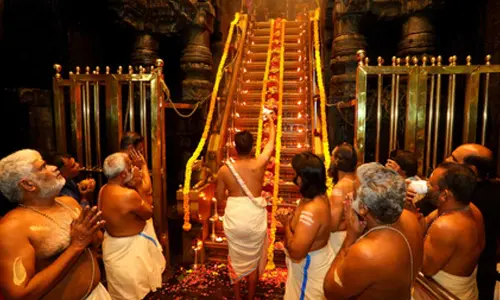Message for all

Prime Minister Narendra Modi has, finally, spoken out on violence against religious minorities, declaring that his government will not tolerate it and that there would be equal treatment to all denominations.
Prime Minister Narendra Modi has, finally, spoken out on violence against religious minorities, declaring that his government will not tolerate it and that there would be equal treatment to all denominations. Besides the minorities, the message is as much to the affiliates of the Sangh Parivar to which he belongs. His party’s polls debacle in Delhi that witnessed vandalizing of four Christian churches during the campaign carries a lesson he can scarcely ignore. He has moved to defend his government’s development agenda and its reputation among the investors and the foreign government with which he is interacting. And somewhere, the counsel of US President Barack Obama against India falling prey to sectarian violence, appears to have a salutary effect. The way that counsel was trashed by some of his associates must have sent negative signals to Washington and to the world community that is watching his government with interest.
It is tempting to be self-righteous or be defensive. We should think and do better than being consoled by the conditions next door, in Pakistan, where sectarian violence is a daily occurrence. While taking into account all this, it is worthwhile to look at a larger picture, including the US’ own record and that of some other societies who preach us in tackling that kind of violence. In the latest rush of hate crime in the US, a Hindu temple has been vandalized and threatening “Get Out” signs have been posted on a temple and a mosque. In Alabama, an elderly Indian has been attacked by the police provoking India’s protest. Governor Robert Bentley has apologised for the "unfortunate" incident that is, by no means, isolated.
The US and Europe have been prone to hate crime and violence prompted by ethnic, religious, racial prejudices, often prompted by stark ignorance. The way Muslims – anyone with a Muslim-sounding name—have been targeted and discriminated in the wake of 9/11 is a case in point. Ignorance has made Americans and Europeans attack unsuspecting Sikhs – anyone who sports a beard a turban – attacking them at their gurdwara when they were engaged in prayers and conducting a ‘langar’, distributing free food. The FBI report of 2014 says that 11.1 per cent hate crime is race-related. Crimes targeting Black and transgender Americans persist, but they are under-reported and under-recorded.
But it must be conceded that the relationship between race and crime in the US has been a topic of public controversy and scholarly debate for more than a century. Since the 1980s, the debate has focused on the causes of a high proportional representation of some minorities at all stages of the criminal justice system, including arrests, prosecutions and incarcerations. The experience in Canada, Britain and most European countries is not very different. Prejudices born of historical experience of being colonizers or ignorance and jobs going over to migrants, have contributed to hate crime. The important thing is that while it is not possible to completely end hate crime, vigilance by the government and the civil society must work to curb it.














